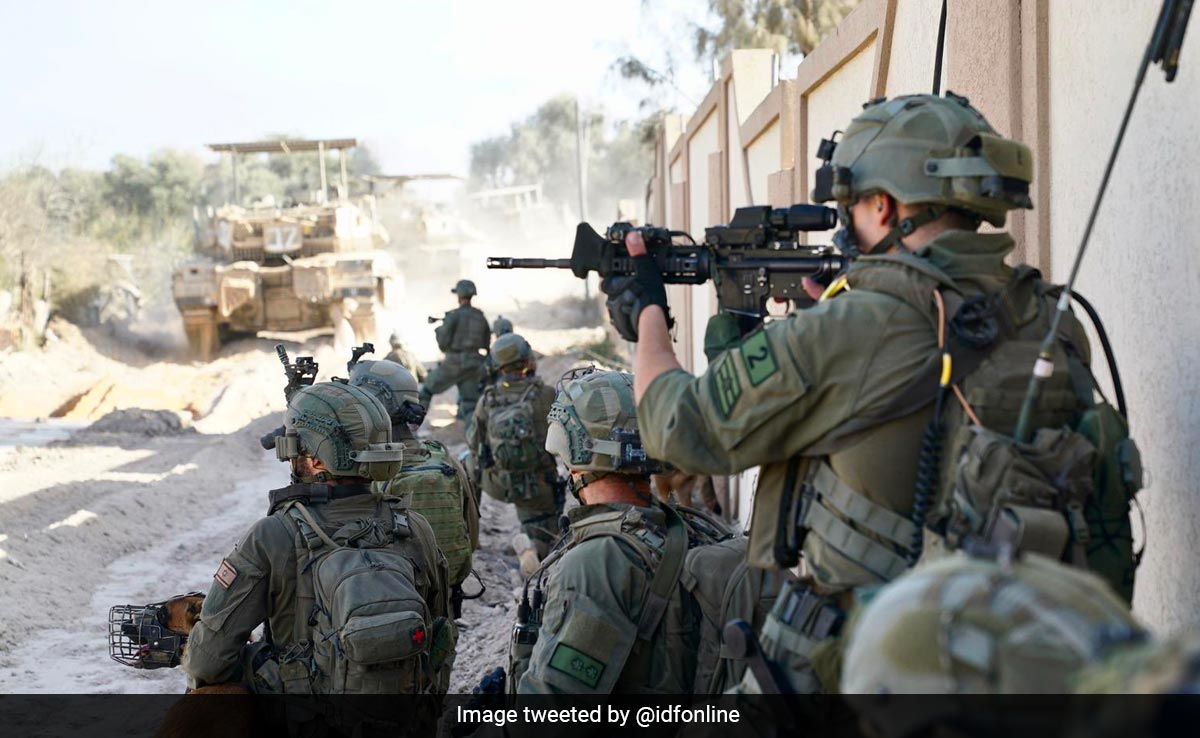
Gaza Urban Warfare: More Israeli troops would be required to completely capture Gaza.
The Israel Defence Forces (IDF) have encircled Gaza City and what exists now is north and south Gaza after striking the important Salah-Al-Din road that runs north-south. The Palestinian Authority President Mahmud Abbas has denounced Israel’s offensive as “genocide” while the IDF calls it its mission to uproot Hamas.
Before the launch of the full ground invasion, Israel conducted relentless air strikes to destroy Hamas structures and hit the ‘Gaza Metro’, a secret web of tunnels and even hospitals.
Fighting in Built-up Areas (FIBUA), in other words, an area dense with buildings and structures will entail lethal urban warfare, posing severe challenges for the Israeli ground troops and armoured units.
First
The narrow lanes of Gaza may not be the ideal place for armoured units like tanks or Infantry Fighting Vehicles (IFVs) to move as Hams operatives may use buildings to fire anti-tank guided missiles. Hamas has claimed that intense fighting broke out when Israel entered Gaza and fired machine guns and anti-tank guided missiles (ATGMs) at the forces.
Israel has targeted the observation posts and anti-tank missile launch posts of Hamas.
The ongoing Russia-Ukraine war showed how vulnerable tanks and troops can be to ATGMs when not supported by Close Air Support (CAS). Russian tanks were sitting ducks for Molotov Cocktails thrown from buildings and built-up structures.
Not just Molotov Cocktails, even Kamikaze drones targeted Russian T-72, exposing the design vulnerability of the ‘Jack-In-The-Box’ design of the tanks. The Indian Army operates Russian T-72 and T-90 tanks.
Learning from the Ukraine war, Israel is now installing metal roofs, also known as “cope-cages”, on tanks to protect them from munitions and drone attacks.

‘Cope Cage’ on top of Israeli tanks
Second
Not Just tanks but even ground troops are exposed to surprise attacks from hideouts and ambushes from the ‘Gaza Metro’, a web of secret tunnels built by Hamas to supply, store weapons, hit and run after guerrilla attacks.
Israel has developed a new weapon called “Sponge Bombs” to neutralise the tunnel threat but the IDF intelligence says that Hamas has kept the hostages in these tunnels.
During Operation Pawan, the Indian Peacekeeping Forces (IPKF) in Sri Lanka faced the challenges of FIBUA when the LTTE operatives carried out guerrilla attacks and Improvised Explosive Devices (IED) attacks on roads and junctions leading to Jaffna.
Well-entrenched LTTE cadres attacked the IPKF from unknown positions, and poor ground intelligence of the area resulted in heavy casualties to the Brigade comprising of the 4/5 Gorkhas, 5 Para and 4 Mahar suffered over 200 casualties until 6 Guards, the Striking Sixth was assigned the task to break through and reach Jaffna Fort.
Delta Company, commanded by Captain Anil Chatta, under the guidance of commanding officer Col B R Bhatia, Shaurya Chakra (SC), broke through the cordon using an innovative approach of going cross-country in pitch darkness using maps from 1949.
Third
The street fighting in Gaza is expected to stretch for weeks and Israel has to maintain supply lines when fighting deep in hostile territory, especially when the probability of ambushes is very high.
The liberation of Mosul by US-led forces from ISIS in Iraq serves as a lesson for operations in a Dense Urban Environment (DUE). Large-scale combat operations are required to capture a modern city.
Isolating a city is impossible when the lines between a combatant and a civilian are blurred and the depth and duration increase the difficulty.
More Israeli troops would be required to completely capture Gaza, which can result in high civilian and troop casualties.
Fourth – The Battle Of Perception
Despite global concerns over a major humanitarian crisis in Gaza, Israel has continued its operation. The next big challenge for Israel would be the Battle of Perception.
Over 9,700 people have died and the UN has warned that a ground invasion may significantly increase civilian casualty in Gaza.
A 2017 report by the International Committee of the Red Cross, ‘I Saw My City Die‘, highlights how deadly Urban warfare is to civilians in Syria and Iraq.
The report said the war in cities caused eight times more casualties than fighting in other areas.
Gaza has a population density of 5,500 people per sq km and the sufferings of the innocent may not end soon.




